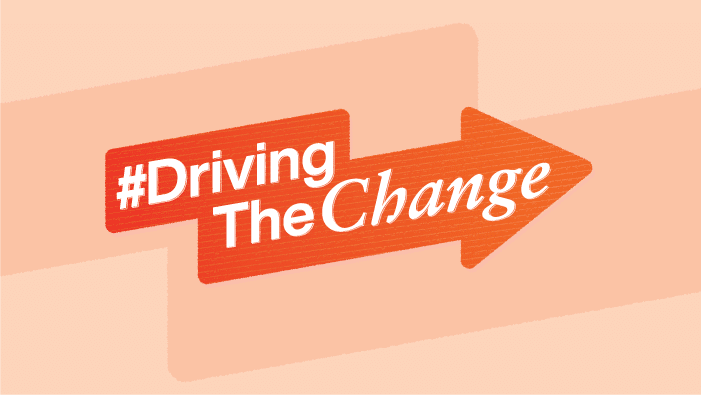Listen to this blog
Embarking on a career in the banking and finance sector is potentially rewarding. The industry offers competitive salaries, job security, and promising career growth, making it a desirable choice for many individuals. For graduates of the Bachelor of Business Administration (BBA) program, several positions in both public and private sector banks are available. This degree allows students to acquire a strong foundation in business and management practices, making it applicable for numerous banking positions at the entry level. This comprehensive guide will explore the possibilities of securing a bank job after completing a BBA degree and provide actionable guidance on how to prepare yourself for a robust career in banking.
Types of bank jobs after BBA
After a BBA degree, graduates may explore a broad spectrum of banking jobs ranging from entry-level positions to mid-level and special positions that might require added qualifications. Each role demands a specific skill set and has its own perks and responsibilities. Let’s delve into the types of banking jobs one can consider pursuing after completing a BBA degree.
Entry-level positions
As a BBA graduate, certain banking positions at the entry-level could be ideal for you. These include:
- Bank Clerk: Requires a Bachelor’s Degree in any discipline including BBA. It involves skills in customer service and detail, along with basic knowledge of computers. The average salary ranges from Rs. 0.3 lakh to Rs. 5.5 lakh per annum.
- Bank Probationary Officers (PO): Requires a Bachelor’s degree in any discipline including BBA. This job calls for strong Communication and Analytical skills. Salary: Rs. 3.5 lakh – Rs. 12.6 lakh per annum.
- Customer Service Representative: Eligibility includes Diploma, bachelor’s degree in any discipline, or equivalent. It requires proficient communication skills, and problem-solving skills. Pay scale: Rs. 1.5 lakh – Rs. 5 lakh per annum.
These positions are excellent jumping-off points in your banking career, particularly for BBA graduates who have just entered the employment market after completing their degrees.
Mid-level jobs
After gaining some experience in the banking sector, BBA graduates can aim for mid-level jobs that offer better pay and more responsibilities. Here are some of the job profiles at the mid-level:
- Loan Officer: Requires a Bachelor’s degree in finance and economics or equivalent. Responsibilities include monetary analysis and credit estimation. Salary: Rs. 1.4 lakh – Rs. 4.1 lakh per annum (Source: Glassdoor).
- Relationship Manager: Required qualification is a Bachelor’s or Master’s degree in business or marketing and communication. Requires good interpersonal skills and knowledge of finance. Salary: Rs. 2 lakh – Rs. 8 lakh per annum (Source: Payscale).
- Financial Analyst: Eligibility is a Bachelor’s degree in finance, accounting, BBA, or equivalent. Skills required include knowledge of financial software and analytical skills. Salary: Rs. 2 lakh – Rs. 12.3 lakh per annum (Source: Indeed).
- Credit Analyst: This role requires a Bachelor’s degree in finance, accounting, or related fields, as well as attention to detail and financial skills. Salary: Rs. 2.2 lakh – Rs. 16 lakh per annum (Source: LinkedIn).
These job roles provide a platform for BBA graduates to leverage their expertise and climb up the career ladder in the banking sector.
Special positions (May require added qualification)
The banking sector also offers special positions that might require added qualifications in addition to a BBA degree. These roles include:
- Investment Banker: A Bachelor’s degree in BA, BCom, BBA, or equivalent can get you started; however, additional qualifications might be beneficial. The role demands good knowledge of the capital market and know-how in financial modeling. The average salary can range anywhere between Rs. 2 lakh to Rs. 57.8 lakh per annum.
- Risk Management Analyst: This role requires an undergraduate degree in finance, risk management, or an equivalent field. It involves close attention to detail and knowledge of risk management. The annual pay scale ranges from Rs. 2.1 lakh – Rs. 23 lakh.
- Compliance Officer: Requirements include an undergraduate degree in finance, law, or business administration. The role requires knowledge of regulatory requirements and strong analytical skills. Salary range: Rs. 2 lakh – Rs. 16.2 lakh per annum.
These roles offer an exciting and rewarding career path for BBA graduates willing to acquire additional qualifications.
Here are the ways to get a banking job after BCom
Why BBA is a good choice for banking aspirants
A BBA degree provides students with comprehensive business understanding and equips them with practical, relevant banking skills. With a curriculum that emphasizes the fundamentals of business, market dynamics, and financial systems, a BBA course can be an excellent stepping stone for banking aspirants. It prepares students to understand organizational operations, enhancing their scope for job opportunities in the banking sector.
The relevance of BBA in banking
The BBA program offers a strong foundation in the principles and practices of business administration, equipping students with a combination of theoretical knowledge and practical skills that are highly relevant to the banking sector.
The curriculum covers vital aspects such as accounting, banking & finance, and other related subjects, all of which are imperative in the world of banking. With businesses becoming more dynamic, having a broad understanding of business practices aids in dealing with a variety of banking situations.
Moreover, BBA graduates benefit from the strategic and analytical skills they develop during their course, which are essential when formulating effective banking strategies. In conclusion, a BBA degree’s relevance in banking is rooted in its ability to equip students with a broad range of business skills that are directly applicable to banking roles.
Skill development through BBA course
Apart from theoretical knowledge, a BBA course emphasis on skill development that is highly relevant to the banking industry. Some of these skills include:
- Strong business knowledge: BBA students gain a strong foundation in business and management skills, which are invaluable in the banking and finance sector.
- Financial, marketing, and accounting skills: These fundamental skills form part of the BBA curriculum and are highly appreciated in the banking and finance sector.
- Analytical skills: Analytical thinking and problem-solving skills, integral to BBA studies, are highly prized in the banking sector.
- Communication skills: Since customer interaction is a major part of the banking sector, the interactive skills developed during the BBA program aid students in their banking profession.
The soft skills developed as part of the BBA curriculum, such as leadership development and teamwork, also collectively work to enhance your scope of banking job opportunities after the BBA.
Top banks for BBA graduates in India:
Public Sector Banks:
- State Bank of India (SBI)
- Punjab National Bank (PNB)
- Bank of Baroda
- Canara Bank
- Union Bank of India
Private Banks:
- ICICI Bank
- HDFC Bank
- Axis Bank
- Kotak Mahindra Bank
- Yes Bank
International Banks:
- Standard Chartered Bank
- Citibank
- HSBC
- Deutsche Bank
- Barclays Bank
NBFCs:
- Bajaj Finance
- L&T Finance
- Mahindra Finance
- Shriram Transport Finance
- Tata Capital
Here’s how you can get a banking job after BCA
Necessary skills and attributes for banking careers
To become a successful banker, merely holding a BBA degree may not be enough. Certain skills and personal attributes can greatly amplify your chances of having a successful banking career. These include a sharp analytical aptitude, effective communication skills, a strong orientation towards customer service, impeccable attention to detail, and skills related to leadership and teamwork. Let’s delve deeper into these to understand their significance in banking careers.
Analytical aptitude
In the banking sector, analyzing data to make informed and accurate financial decisions is a crucial skill. Whether it’s evaluating the creditworthiness of a customer applying for a loan, or making investment decisions on behalf of the bank, analytical aptitude is vital.
With the rapid advancements in FinTech, a banker is also required to interpret complex data driven by AI and machine learning. Thus, BBA graduates can gain a competitive edge by honing their analytical skills. A robust analytical aptitude will not only aid in day-to-day banking operations but also play a significant role in strategic decision-making and risk management.
Communication skills
In the banking industry, efficient communication forms the backbone of customer service. Bankers are often the first point of contact for customers and hence, they are expected to present or explain complex financial products and services in a simplified way.
Being able to communicate effectively also helps in understanding the customers better, thereby providing them with the best suited financial solutions. Negotiation is another key area where communication skills are put to test.
During their BBA program, students learn and practice these skills through group discussions, presentations, and interactions thereby becoming proficient communicators. Possessing excellent communication skills thus becomes an asset while embarking on a banking career.
Customer service orientation
A customer-centric approach is vital in the banking sector. The ability to understand customer needs and provide appropriate banking services defines the quality of customer service.
BBA graduates with strong customer service orientation can greatly enhance the customer experience, leading to better customer retention and loyalty. They can handle customer queries, manage complaints, and offer personalized banking solutions effectively.
Moreover, a proactive approach towards providing service could result in identifying potential opportunities for cross-selling or upselling banking products considering the customer’s financial objectives. Hence, being customer-oriented can significantly impact a banker’s success in the long run.
Attention to detail
Banking processes require meticulous attention to detail. Whether it’s managing financial transactions, auditing banking records, interpreting financial statements, or adhering to regulatory compliances, precision and accuracy are paramount.
An undetected error can hold severe repercussions for both the bank and its customers. BBA graduates are trained to focus on finer details of business operations, making them cherry-pick errors and prevent potential slip-ups. Tasks, such as maintaining financial records, preparing reports, and complying with banking regulations, require an extremely detail-oriented approach.
This ability to microscopically examine details can thus separate an effective banker from an ordinary one.
Leadership and teamwork
Banks, like any other organization, thrive on teamwork. Employees must work in sync to ensure smooth and efficient operations. Leadership plays a role not only in team management but also in nurturing a cooperative work culture.
Regardless of the position, a BBA graduate can bring in leadership qualities like strategic thinking, decision-making abilities, and employee management skills to the table. Collaborating effectively with co-workers, handling workplace conflicts, and motivating team members are also part of leadership in the banking sector.
At the same time, understanding the importance of individual roles within the team and respecting diverse viewpoints is crucial for efficient teamwork. This balance between leadership and teamwork can effectively drive the performance of a BBA graduate in the banking sector.
You may like to know if you can get a banking job after MCom
Steps to get a bank job after BBA
Getting a bank job after your BBA degree does not happen by chance. It requires a planned approach, preparation, and consistent effort. From enhancing your skills and certifications to preparing for bank entrance exams, networking with professionals in the industry, and gaining relevant experience through internships – each step paves the way towards your dream banking job. Let’s look at these steps more closely.
Enhancing your skills and certifications
Apart from a BBA degree, having additional skills or certifications can add value to your profile and increase your employability in the banking sector. Here are few ways to enhance your skills:
- Pursuing a Post Graduate Diploma in Banking or any related certificate course can refine your banking knowledge.
- Knowledge of digital technology, data analytics, and financial modelling is increasingly being preferred in today’s digital banking era.
- Soft skills like interpersonal communication, emotional intelligence, and stress management are also sought after in this sector.
- Fluency in multiple languages can be an added advantage, especially for roles involving customer interaction.
Continuous learning and development can keep you updated on the latest trends and practices in the banking industry, thereby increasing your competitiveness.
Preparing for bank entrance exams
To secure a job in a government bank, preparing for bank entrance exams is an important step. The Institute of Banking Personnel Selection (IBPS) conducts exams for positions like probationary officers and clerks in public sector banks. Successful clearance of these exams opens the gateway to a career in banking. Here’s how you can prepare:
- Understand the exam pattern and syllabus: Familiarize yourself with the pattern of the exam and topics covered.
- Practice with mock tests: This can help you get use to the exam format and improve time management.
- Brush up on basics: Concepts of quant, logical reasoning, English, and general awareness form the core of most bank exams. Hence, strengthening these areas is crucial.
- Regular revisions: To retain learned concepts, regular and systematic revisions are vital.
Clearing bank entrance exams requires persistent efforts. Stay focused, and maintain a steady pace of preparation.
Networking with professionals in the industry
Networking is an underrated but effective way of opening doors to job opportunities in banking. It provides a platform to connect with professionals who might share job openings, industry insights, or guidance. Here are a few ways to build your network:
- Join professional platforms: Networking platforms like LinkedIn facilitate connections with professionals in the banking sector.
- Attend industry events: Participate in workshops, seminars, or conferences related to banking and finance.
- Connect with Alumni: Your seniors or alumni working in banks can provide valuable insights and job leads.
- Volunteering: Working as a volunteer in banking-related events can introduce you to potential contacts from the industry.
Remember, networking is not just about meeting people for jobs; it’s about building meaningful relationships that can offer mutual benefits.
Gaining relevant experience through internships
Internships are a practical way to gain real-world experience in the banking sector. It not only gives you exposure to the workings of the sector but also allows you to apply the theoretical concepts you learned during your BBA course. Moreover, internships can give you a glimpse into different roles and functionalities within a bank, thereby helping you identify your area of interest.
Apart from gaining invaluable experience, internships can also help you build strong professional contacts which can later assist in job placements. Therefore, don’t miss any opportunity to intern with banking institutions, either during your BBA course or post-completion.
Online BBA from Manipal University Jaipur
For those who can’t join the bandwagon of regular students pursuing offline bachelor courses, online BBA degrees are gaining popularity. Top universities like Manipal University Jaipur now offer lucrative professional online degrees. It offers an Online BBA degree with comprehensive coursework of 3 year duration spread over 6 semesters.
| Key features of the online BBA program |
| In-depth BBA program spanning over 3 years (6-semester) |
| Updated curriculum delves into theoretical concepts and practical areas within business administration |
| Relatively affordable with a starting fee from INR 1,65,000 |
| Internship opportunities for real-world experience |
| Access to online resources and support from faculty |
| Networking opportunities with industry professionals |
Choosing such online programs allows you to fulfill your aspirations of getting into a banking career while maintaining flexibility in learning.
Check out this online BBA course guide
Conclusion
In conclusion, a degree in Business Administration can be a stepping stone for a rewarding career in the banking sector. The skills and knowledge acquired during a BBA program make BBA graduates suitable for a host of banking roles.
However, stepping into the banking industry requires diligent preparation, tapping into every opportunity for skill enhancement, and building a professional network. With dedication and the right approach, you can leverage your BBA degree to get into well-paid banking jobs. As the banking sector continues to evolve dynamically, BBA graduates equipped with the necessary skills will always remain in demand. Therefore, the decision to pursue a career in banking after BBA is indeed an excellent one guaranteeing a promising and fulfilling future.
Frequently asked questions
What banking positions are available for BBA graduates?
A wide variety of banking positions ranging from Sales Officer, Accounts and Finance Manager, Relationship Manager, Loan Officer, Loan Servicing Manager, Credit Analyst, to Financial Advisor are available for BBA graduates in both government and private banking sectors.
What additional qualifications or certifications are needed for a banking career after BBA?
Here are some diploma and certificate courses that can enhance your banking career after BBA: Graduate Diploma in Banking, Graduate Certificate of Finance and Banking, Post Graduate Certificate in Retail Banking, and Diploma in Banking Services Management, among others.
Become future-ready with our online BBA program













